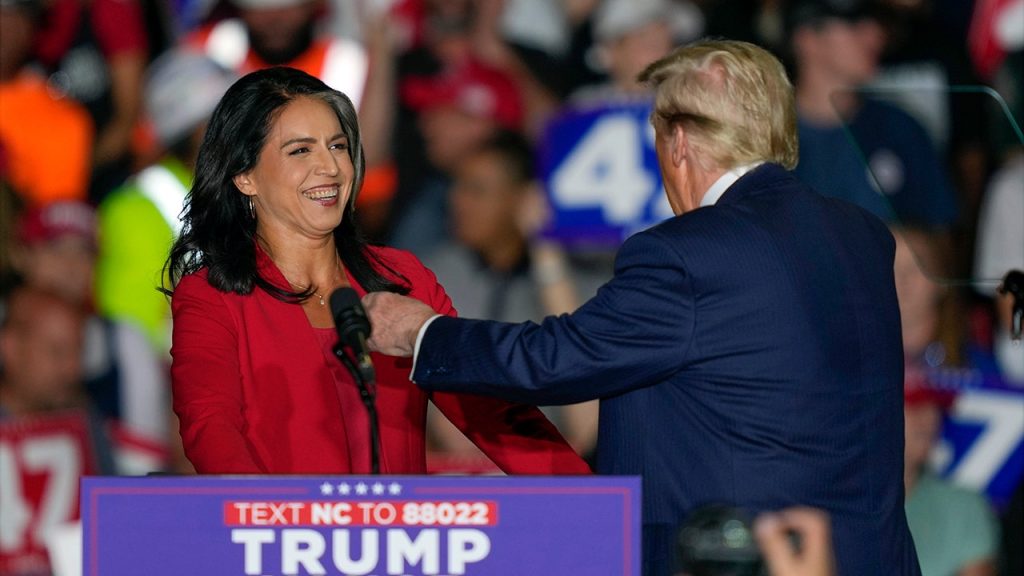Former Democratic presidential candidate Tulsi Gabbard announced her decision to join the Republican Party at a Trump rally in North Carolina. She recently joined the Trump campaign as an honorary co-chair for his transition team, citing admiration for Trump’s leadership and his efforts to transform the party. Gabbard expressed her support for the Republican Party as the party of the people, equality, and peace, highlighting its history of fighting against slavery and being led by a president who fights for peace. Trump reacted positively to Gabbard’s announcement, calling it a great honor and surprise.
Gabbard’s political journey includes serving as a vice chair of the Democratic National Committee from 2013 to 2016 before resigning to endorse Bernie Sanders for president. During the 2020 presidential election, she criticized then-candidate Kamala Harris for her prosecutorial record as California’s attorney general and her role in the cash bail system. Gabbard’s departure from the Democratic Party in 2022 marked her transition to becoming an independent. Since then, she has engaged in conservative events and started her podcast. Gabbard, who represented Hawaii’s Second District in Congress from 2013 to 2021, currently serves in the U.S. Army Reserves with the rank of lieutenant colonel.
Gabbard’s decision to join the Republican Party adds another dynamic to her political career and aligns her with a different set of values and priorities. During her time in Congress as a Democrat, she gained attention for her strong stance on certain issues and debates with her party members. By endorsing Trump in the 2024 presidential race and then formally joining the Republican Party, Gabbard is positioning herself within a new political landscape and potentially impacting future political outcomes. Her move has sparked curiosity and interest from various political observers and commentators.
The announcement of Gabbard joining the Trump rally and officially joining the Republican Party has implications for the upcoming election and the political landscape in general. As a former Democrat with experience in national politics, Gabbard’s shift to the Republican Party may signal changes within both parties and wider implications for future elections. Her endorsement of Trump and decision to align with the Republican Party reflect broader trends in American politics and the evolving nature of party affiliations and ideologies.
Overall, Tulsi Gabbard’s decision to join the Republican Party at a Trump rally represents a significant development in her political career and the political landscape more broadly. By aligning herself with Trump and the Republican Party, Gabbard is making a bold statement about her beliefs and values. Her transition from the Democratic Party to becoming an independent and now a Republican showcases the complexities and nuances of political identities and affiliations. As she moves forward in her political journey, Gabbard’s decisions and actions will continue to be closely monitored and analyzed by political observers and commentators.


